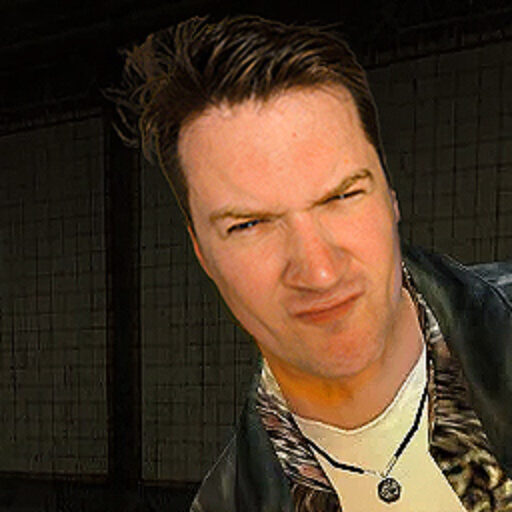I’m a big Remedy enjoyer, I like Alan Wake and Max Payne and Quantum Break, and I want to like Control, but I don’t, though I like a lot about it. I completed it, was bewildered, and now can’t go back to it. More than anything I’ve seen before, every little thing in it feels like a missed opportunity, and like the thing it should have been was well within reach.
The way Alan Wake 1 sort of peters out, dragging its vague conclusion out over three DLCs that also don’t really conclude, somehow remained pretty charming. Control feels like it took weird lessons from that, and is now not interested in conclusions at all, even unexpressed ones.
I’m not someone who needs closure on everything, but I want it to feel like the author knows kind of what’s happening, even just as a vibe, even if they don’t want to tell me. But everything in Control, every monster, character, document or concept, is a cool intriguing setup that’s left dangling. What pulls me through an experience is the sense that the author is Going Somewhere With This, and for me they’d earned that trust, but it turns out they aren’t, and once you lose that trust it’s difficult to keep going. Every little plot stub feels not like a tease or an unfinished thought, but like a discarded one, an elevator pitch for a book they were never really interested in writing.
The shame of it is that the setting’s rad, and puts ideas in your head that are better than the ones in the game. I had figured that Jesse’s becoming Director was a setup for her destroying the FBC: She’s a victim of the Bureau’s bullshit, it’s consumed her life, it’s a terrible organisation whose task is impossible and misguided, and the building itself is sentient and probably feels that way. But nah, she’s into it. Alright.
On the other hand, Control introduces (or clarifies) the idea of the Remedy Shared Universe, and this is actually the only instance of this sort of bullshit that I think is worthwhile. Instead of forcing every work into a unified whole, the underpinning principle is incoherence. Their “universe” is a representation of the creative process itself – a weird, fluctuating, amorphous soup, where everything exists and doesn’t all at once. Alan Wake’s characters literally rewrite reality, but you get the sense that that sort of thing happens to reality all the time. It’s cool to have a fictional universe’s made-up “rules” be so in alignment with the actual process that creates it. Plus, the answer to any stupid fan question about “is alan wake in the same city as max payne” is automatically “sure, sorta”, and that’s great.
in reply to @joewintergreen’s post:
I tried to play Control but bounced off the combat pretty early into the game (I made it to the shifty hotel part but not much further). unrelated to gameplay: I think I also just do NOT like games with frequent self talk lmao.
Anyway, re: combat:
I thought this was a me problem, like, “Maybe it’s too hard for me (person who hasn’t played many combat games)” but then not long after I gave up on it, Elden Ring came out. From launch (02/25/22) to September 2022 it was all I played. 571 hours on record lmao. 86% of achievements, and I plan to go back for more as soon as the DLC drops.
My most played game before that was Animal Crossing New Horizons with 2k hours racked up over the pandemic lmao.
I feel that about it’s story, but I also feel that about it’s gameplay. A lot of stuff is building up, your level, the enemy power, your abilities, your weapon, but it never really feels like it adds up to anything. It just feels like nearly the same mechanics, doing nearly the same things (which is a big issue with RPG style levelling applied to action in a lot of instances generally). Your goals are essentially stripped down to the premise and barely go beyond, much like the world building.
someone told me this last week and i hate it:
jesse’s brother, dylan, is an experiment of what a polaris-touched individual does with direct bureau influence, while there’s specific signage that jesse was strictly off-limits; they want to see what someone does with polaris without the bureau being involved.
in other words: jesse is the control subject
It is very difficult to replay Control. Playing first time blind there was this sense of mystery, of discovery. Now that all lies bare, it is just samey corridors and rooms (they tried to distinguish them but I am getting terribly lost nevertheless), extremely noisy enemies I prefere to just run away from if possible, little annoying details (why can’t I fly in the meeing room to look up the portraits of past Directors?) and a total wash that was Foundation (I am still bitter that they killed off Marshall for such rushed reason; as if person like her wouldn’t take extra device with her going on a dangerous mission).
On a bigger scale, I am resentful for Alan Wake AWE DLC, as it makes what was a enigma of that game into just another AWE with just another bossmonster to fight. To me Alan Wake the game had a sense of the mystery. I would prefer to ‘Remedy multiverse’ never happen and Control and Alan Wake be entirely separate places only interconnected very tangentially at ‘soft places’ such as Oceanview hotel.

Leave a Reply